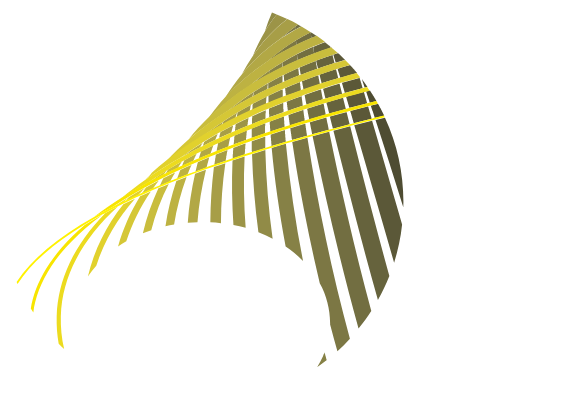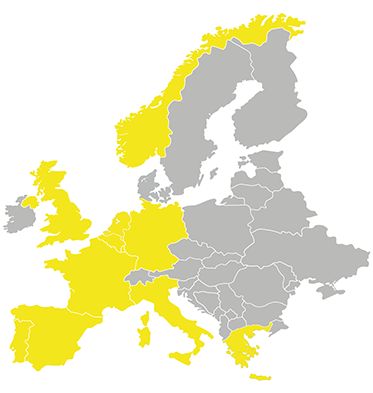Horizon Europe’s main features
Horizon Europe is an ambitious funding programme for research and innovation. Its main features are:
- strengthening science and technology in the European Union through increased investments in highly skilled people and cutting-edge research
- promoting the EU’s industrial competitiveness and its innovation performance
- achieving the EU’s strategic priorities, such as the Paris Climate Agreement, and addressing global challenges that affect the quality of our daily lives.
What is new in Horizon Europe?
Horizon Europe differs from its predecessor Horizon 2020 in a number of ways. The most obvious changes are:
- European Innovation Council (EIC): one-stop shop to take the most promising ideas from the laboratory to the ‘real’ world and support the most innovative start-ups and companies in scaling up their ideas
- EU-wide research and innovation missions: ambitious, bold goals to tackle problems that affect our daily lives
- Open Science: becomes the modus operandi of Horizon Europe and goes beyond the access policy of Horizon 2020 with open access to publications, data and research data management plans
- New Generation of European Partnerships: Horizon Europe streamlines the number of partnerships that the EU co-programmes or co-funds with partners such as the industry, civil society and funding foundations
- Simpler rules: this increases legal certainty and reduces the administrative burden for beneficiaries and programme managers.
The three pillars of Horizon Europe
The Horizon Europe programme has three pillars:
1. Excellent Science
Pillar 1 supports frontier research projects that researchers themselves define and direct through the European Research Council (ERC). In addition, this pillar funds fellowships and exchanges for researchers through Marie Skłodowska-Curie Actions (MSCA) and invests in research infrastructures.
2. Global Challenges and European Industrial Competitiveness
Pillar 2 directly supports research related to societal challenges. The European Commission has formulated these into six clusters:
- Health
- Culture, Creativity and Inclusive Society
- Civil Security for Society
- Digital, Industry and Space
- Climate, Energy and Mobility
- Food, Bioeconomy, Natural Resources, Agriculture and Environment.
Also, this pillar sets EU-wide missions with ambitious goals. This is how it addresses some of our biggest problems. These missions with some of their targets for 2030 are:
- Adapting to climate change, including societal transformation: preparing Europe to deal with climate disruption
- Cancer: more than three million lives saved, longer and better lives, gaining a thorough understanding of cancer
- Healthy oceans, seas, coastal and inland waters: cleaning up marine and freshwater, restoring degraded ecosystems and habitats
- Climate-neutral and smart cities: supporting 100 European cities and demonstrating a systematic transformation to climate neutrality by 2030
- Soil and food health: at least 75% of all soils in the EU are healthy for food, people, nature and climate.
Pillar 2 also includes activities of the Joint Research Centre. This research center supports EU and national policy makers with independent scientific evidence and technical support.
3. Innovative Europe
The aim of Pillar 3 is, through the European Innovation Council (EIC), to make Europe a leader in market-creating innovation. The pillar helps develop the overall European innovation landscape, among other things through the EIC Accelerator programme and strengthening of the European Institute for Innovation and Technology (EIT). In this way, it promotes the integration of business, research, higher education and entrepreneurship.
Who can apply for Horizon Europe funding?
The Horizon Europe Programme is open to all types of organisations from EU Member States and Associated Countries. From start-ups, SMEs, universities and research organisations to large companies. The EU sets the bar high, because only the most innovative projects receive funding. In addition, many ‘calls’ require the cooperation of at least three parties from three different countries.
What does PNO offer?
We offer unrivalled funding expertise and results:
- more than 36 years of hands-on public funding experience
- over 1200 successful EU grant applications since 2000, plus success rates for Horizon 2020 and other European funding schemes structurally well above the market average
- specialised teams with experienced domain experts
- additional specialists in compliance, corporate finance and state aid.
Are you looking for funding for the innovation plans of your organisation or consortium? The experts of PNO Consultants, ARTTIC, EGEN, PNO Chemistry, ffiqs, Nehem and ttopstart (all part of PNO Group) are involved on a daily basis in applying for (European) grants and funding for projects in the fields of agro & food, chemistry, industry, ICT, energy, climate, mobility, financing strategies, education, research, labour and life sciences & health, and all other Horizon Europe themes. Do you have project plans or ideas that may be eligible for a Horizon Europe grant? Submit them to us! Call +31 (0)88 838 13 81 or send us a message:





